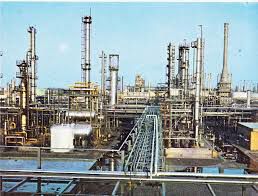1948: THE BRITISH LABOUR GOVERNMENT AND THE COMING OF THE ANGLO-IRANIAN OIL COMPANY’S CRISIS
The Supplemental Agreement was submitted for ratification by the Majlis. This had not been achieved by 30th July 1949, when the Majlis session ended, and the devaluation of sterling in September of that year did nothing for the standing of Britain.
When a new Majlis was elected in September 1949, the Ministry of Finance urged upon the Company the necessity for revising the Agreement so as to make it more acceptable to the new Majlis. The Company replied that the Supplemental Oil Agreement was the result of long and difficult negotiations and they could not hold out any hope of amending it, and they pointed out that, in any case, the Majlis had not yet reached any decision on it.17
Two Iranian Prime Ministers hesitated to commend the Supplemental Agreement to the Majlis.
When Mansur became Prime Minister early in 1950, the Shah instructed him to get the Supplemental Agreement through the Majlis, but he was uncertain how to do so and, in the event, merely staved off the issue by presenting the Agreement to the newly elected Majlis and allowing it to be referred to a special commission of the Majlis which, though it was supposed to contain equal representation of the various factions in the house, in fact contained five members of the National Front in its total membership of 18. Mansur later fell from office and was replaced by General Razmara.18
General Razmara was reluctant to give the Supplemental Agreement support, and his public references to it were in equal terms. ‘The Bill embodying the Agreement therefore remained with the Majlis Oil Commission which, in November 1950, recommended to the Majlis that it did not sufficiently serve Persian interests.’19 The Oil Committee of the Majlis was chaired by Dr. Musaddiq. It rejected the Supplemental Agreement in December 1950. The final blow to the Supplemental Agreement’s chances came when the Arabian-American Oil Company (ARAMCO) reached a 50:50 profit sharing agreement with the Saudi Government, which was announced in December 1950.
Meanwhile on 10th February, the Company, in order to strengthen Razmara’s hand, not only informed him that they were ready to negotiate an entirely new agreement based on an equal sharing of profits, but offered him substantial monetary support (£5 million at once and £2 million a month for ten months, all in advance of future royalties) in order to assist the Persian Government in their immediate financial difficulties. Razmara preferred, however, not to reveal this offer to the Oil Commission and the Majlis and attempted to enact a nationalisation resolution in another way. He appeared before the Oil Commission in order to deliver reports from Persian technical, financial and legal experts which were unfavourable to nationalisation. This action undoubtedly led to his assassination three days later.20
‘Profound ignorance of the benefit of the Agreement to Persia is almost universal at all political levels,’21 was the view of Sir Francis Shepherd, British Ambassador to Teheran. This has been the British perception of the Anglo-Iranian Oil Company’s account of events.22 On 20th March 1951, Majlis approved a recommendation from the Oil Committee for the nationalisation of AIOC; on 28th April it passed a bill to implement this nationalisation and on the same day Dr. Mussadiq was appointed Prime Minister.
Dr. Muhammad Musaddiq received his doctorate in 1914 from Neuchatel University in Switzerland, in Law. He was a descendant of the Qajar dynasty, and a member of Iran’s upper class. His government posts included Governor-General of Fars and Azerbaijan, Minister of Finance, and Minister of Foreign Affairs. His posts as the Governor-General and Minister were brief. In 1920 Dr. Musaddiq was elected to the Fifth Majlis as a deputy from Teheran. He was an intense nationalist, believing that by purging foreign influence from Iran poverty could be eradicated from his country.
- Ibid, p. 4.
- Ibid.
- Ibid.
- Ibid.
- PRO, London, FO 371/82374, General Political Correspondence of the Foreign office, Sir Frances Shepherd, British Ambassador in Teheran to the Foreign Office, on negotiations between AIOC and the Persian Government, 21st April 1950.
- For a study of the Iranian side of events, see J.A. BILL and W.R. LOUIS, Musaddiq, Iranian Nationalism and Oil, (London: I.B. Tauris and Co. Ltd., Publishers, 1988).



